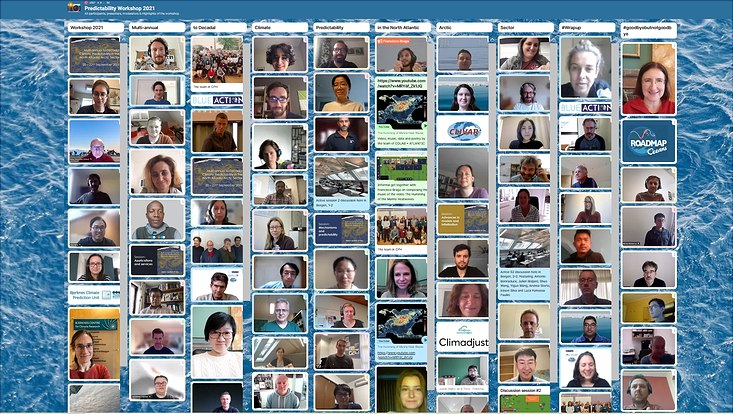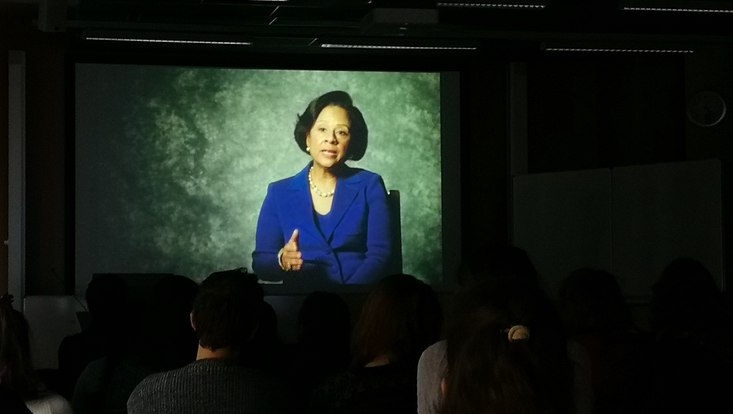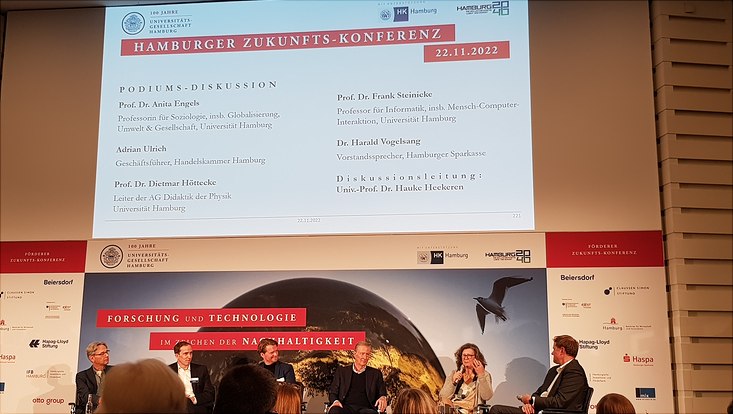Yay, my first live conference after 1.5 years of pandemia!
4 October 2021, by Iuliia Polkova

Photo: Blue-Action
“Copenhagen, I am coming to you!”, I whispered to myself after finally having read all the Covid regulations from Germany, and Denmark, and Uni, and RKI, and DB… Have I forgotten anything? I have not travelled by public transportation for a long time, so even booking a train ticket from Hamburg to Copenhagen and a hotel room felt already like an effort. Exciting day of the departure: it is only five hours of the trip but I felt like traveling to a very remote location on Earth. Finally, I sit in the train and a friendly train operator’s voice kindly reminds passengers to wear medical masks during the whole trip as long as we are on the German side of it. We however may not wear masks on the Danish side. “Ridiculous”, said some, “cautious”, said others.
From about 250 conference participants, 25 brave, lucky or desperate ones were there at the venue, while all the others participated online. Haven’t I already told what the conference was actually about? It was all about Multi-annual to Decadal Climate Predictability in the North Atlantic-Arctic (https://blue-action.eu/events/predictabilityworkshop and Proceedings). Thus about predictions such as what and why can be predicted and how exactly, and about those actual people, sectors of the economy, and regions that rely on these predictions. For each session, we had two chairs moderating online and at the venue – the Royal Danish Academy of Sciences and Letters. Participants posted questions online and we, moderators, announced them to the speakers. Sometimes it was a bit confusing and we needed to improvise. The hybrid format of the conference was new to all of us. But in the end, if you handle unexpected situations with a smile and maybe jokes if you can, it is fun and even in a way ice-breaking. One has to remember, we are in this together to learn from each other! Therefore and of course due to the thought-through organization of this event, all went very well and the conference was indeed well-received by the participants online and in presence.
My personal research highlights from this event are discussions on understanding oceanic processes, on innovative ways of mitigating errors in climate models and on climate services: Hjálmar Hátún (Faroese Marine Research Institute) gave impulse to very interesting in-presence discussions on how we measure and what we know about the complexity of ocean flows in the subpolar North Atlantic. We need more observational evidence for widely used concepts of the overturning circulation in polar regions and deep ocean. We also need to rethink some simplified definitions of the overturning circulation and their meaning for predictability studies. My second highlight is the talks by Francine Schevenhoven (Geophysical Institute, University of Bergen and Bjerknes Centre for Climate Research, presentation) and François Counillon (Nansen Environmental and Remote Sensing Center and Bjerknes Centre for Climate Research, presentation) on a mind-boggling idea of combining multiple Earth System Models into a Super Model to reduce prediction biases. There is a plethora of climate models developed around the world. They are built as global models, however, they are usually developed to suit a certain region and to represent well the important processes for that region but not necessarily globally. So why not finding a way to unite these models and to make them learn from each other in order to predict future climate with the most unbiased global solutions? Is this still real or from science fiction? I find this work very inspiring! And my third highlight is the talk from Isadora Christel Jimenez (Barcelona Supercomputing Center, presentation) on what happens to the data after they are produced. She invited us to rethink the waterfall (for me, it always looked as the stairs) concept of developing a climate service. Interestingly, I also presented a circular and iterative workflow of implementing climate predictions for marine risk services that we developed with my project partners in Blue-Action (see our poster). However, I must say this idea of developing an iterative service is in a way obvious and somehow even invites itself. Many things of what we are doing in life are iterative (build-test-improve), so why not climate services? Another interesting question that I do not see being addressed all that often is how to increase uptake of climate research by industry in order to achieve resilience to climate variability.
Amazing event! It left me thinking about how discussed topics are related and can be used to drive future research on climate predictions. Maybe hybrid meetings are the format of future scientific events. It definitely has the potential to be more outreaching.
Author
Dr. Iuliia Polkova is a climate researcher with keen interest for making climate predictions useful for society.


